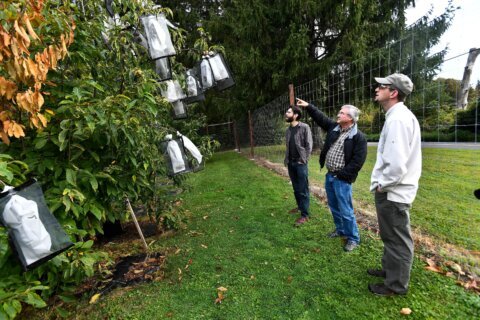WASHINGTON — Wild American ginseng is a cash crop, raking in $400 to $450 a pound in Virginia, says Keith Tignor, of the Virginia Department of Agriculture and Consumer Services.
Because ginseng, which is used for medicinal purposes and often seen in foods and supplements, is so lucrative, it’s over-harvested and on a threatened species list in Virginia. New regulations, however, are intended to ensure the survival of the species.
Under the new rules, the start of this year’s ginseng harvest season has been moved from Aug. 15 to Sept. 1, shortening the season by a few weeks. The season ends Dec. 31.
Tignor says the later harvest start will “allow the plants to really reach a reproductive stage.”
In addition, plants that are harvested must be five years old – Tignor says it takes that long for a plant to produce seeds (berries). And when a plant is harvested, seeds must be planted in its place to keep the number of plants from dropping.
The new regulations do not apply to Virginians who harvest the plant on their own land, but the department urges landowners to follow the regulations anyway, in order to ensure the viability of their own plants.
Tignor says wild American ginseng began to be harvested for international trade in the 1700s. Most of it goes to China, he says, “because the wild ginseng in Asia had gone almost extinct.”
He says wild ginseng in the U.S. was protected by the Convention on International Trade in Endangered Species of Wild Fauna and Flora (CITES) in 1973 to keep it from the same fate.
The new regulations were put in place to address concerns from federal officials about the sustainability of ginseng, Tignor says.
Follow @WTOP on Twitter.







